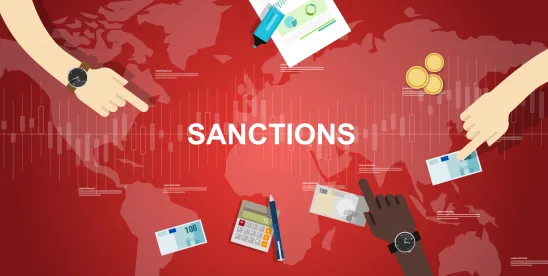On 20 May 2025, the European Council announced its 17th sanctions package against the Russian Federation. The latest measures reinforce the EU’s strategic objective of undermining Russia’s capacity to finance and sustain its war efforts in Ukraine.
The latest sanctions package further intensifies pressure on the Russian economy through a comprehensive expansion of restrictions on maritime transport, military and dual-use exports, as well as circumvention tactics. Notably, it includes the largest-ever coordinated action against the so-called “shadow fleet,” targeting vessels used to circumvent the oil price cap regime.
Anti-circumvention Measures
The package designates an unprecedented 189 additional vessels as part of Russia’s “shadow fleet”, bringing the total number of designated vessels up to 342. These ships, many of which covertly support Russia’s energy export operations, are now barred from EU ports and prohibited from receiving maritime services.
This marks the largest coordinated G7 action against Russia’s covert oil export infrastructure to date. According to the Oil Price Cap Coalition, previous designations had caused shipments of Russian crude to fall by 76%.
The new package imposes restrictive measures on 75 new targets implicated in undermining Ukraine’s sovereignty and territorial integrity, including 17 individuals and 58 entities. New listings primarily concern entities in the Russian military and defense sectors, including firms involved in operating or enabling the shadow fleet, defense supply chains and involved in looting cultural and heritage items from the disputed territories; among them is the Volga Shipping Company, a key Russian maritime operator, now sanctioned for its role in generating revenue in support of Russia’s war efforts.
Furthermore, among the new targets are 31 new companies, which have been added to the sanctions list for directly or indirectly supporting Russia’s military-industrial base, or facilitating sanctions evasion. These include:
- 18 firms based in Russia
- 13 companies from third-party nations including: six Turkish, three Vietnamese, two Emirati, one Serbian and one Uzbek company
Trade Measures
Export restrictions have been further strengthened, with new prohibitions on:
- Chemical precursors linked to missile propellants (e.g. sodium chlorate, aluminum powder and magnesium powder)
- Spare parts for high-precision Computer Numerical Control (CNC) machinery, including ball screws and encoders, critical for maintaining Russia’s military production capabilities
These measures are accompanied by enhanced anticircumvention safeguards, including tighter controls on transit routes and stricter due diligence obligations for traders and operators in high-risk sectors.
Energy Measures and the Sakhalin Exemption
The package extends the existing oil price cap exemption for the Sakhalin-2 project, permitting crude oil shipments by sea to Japan until 28 June 2026. The extension reflects ongoing Japanese energy security concerns and coordination within the G7 framework.





 />i
/>i

